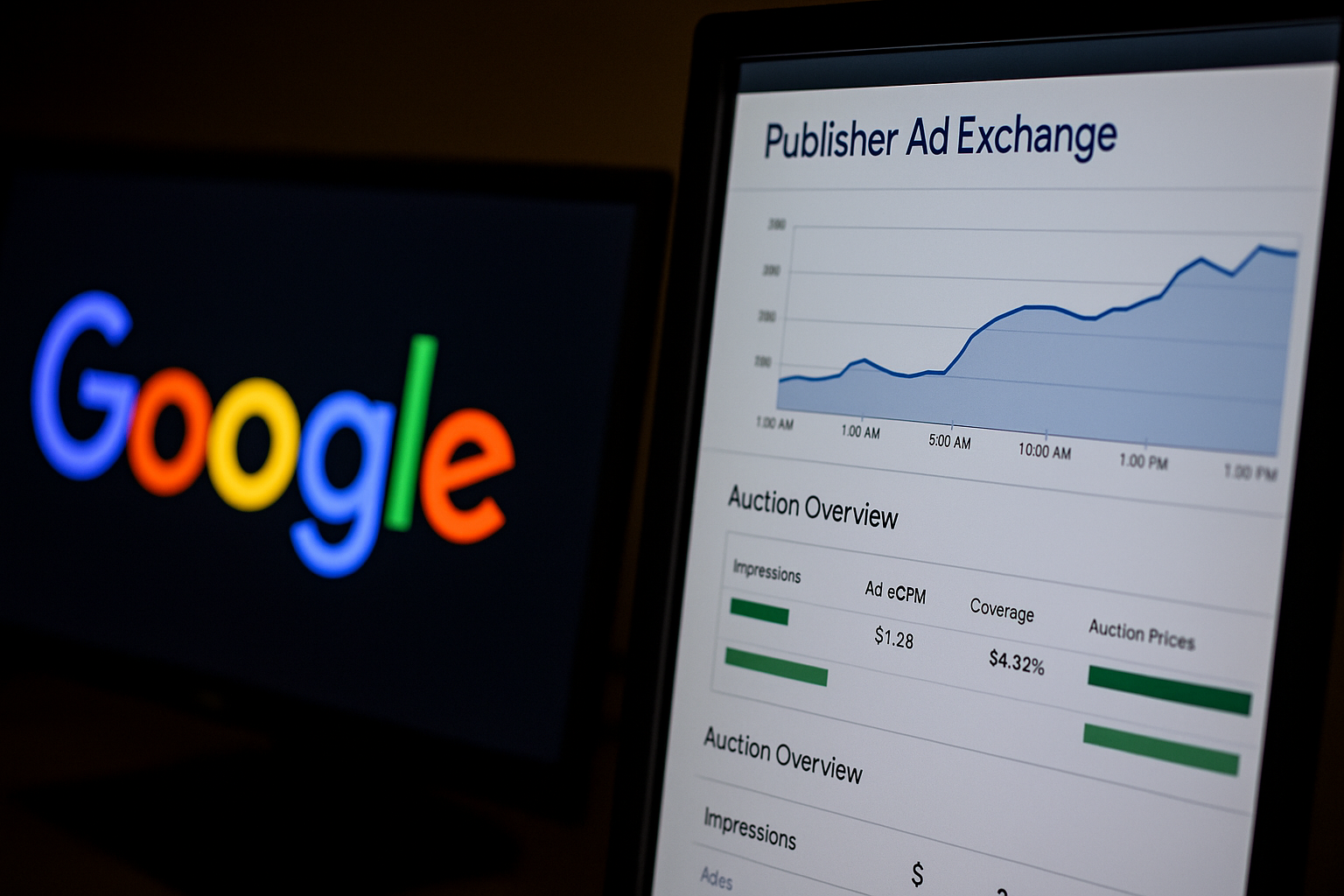Google Fights to Keep Control of Ad Tech Amid Breakup Trial
By Tredu.com • 9/22/2025
Tredu

DOJ urges sale of key units, Google pushes back as trial begins in Virginia
Alphabet’s Google is on trial in Alexandria, Virginia this week, in one of the most significant antitrust cases in recent years. The U.S. Department of Justice (DOJ) and several states have asked a court to force Google to divest its ad exchange (AdX) and make its ad auction mechanism open source, seeking structural remedies to what they call Google’s monopolistic control over digital advertising infrastructure. Google argues those remedies would be unworkable and disruptive.
What’s at Stake & Key Arguments
- The DOJ wants Google to sell its AdX platform and open-source the mechanism that runs hundreds of billions of auctions daily when web users load pages.
- U.S. District Judge Leonie Brinkema has already ruled previously that Google holds unlawful monopolies in ad tech, specifically in the publisher ad exchange and publisher ad server markets. Now the trial will decide what remedies to apply.
- Google contends that divesting these tools or making the auction system open source could cause havoc across the ad ecosystem, creating confusion for publishers, advertisers, and platforms. Instead, Google is offering behavior-based fixes: tweaks in policies to allow more competition, without splitting up the business.
Potential Market & Industry Implications
- Publishers’ leverage & ad revenue: If the government succeeds, publishers may benefit from lower fees, greater fairness in auctions, and ability to choose among competing ad servers. If not, costs and margins might remain tilted toward Google.
- Advertisers & tech vendors: Companies buying ad inventory could see changes in pricing structure, auction transparency, and possible new entrants. Vendors of competing ad tech platforms might gain business if open systems are mandated.
- Big Tech regulatory risk: The trial is part of a broader push by U.S. regulators to rein in perceived dominance by companies like Google, Meta, Amazon. Rulings here may set a precedent for other antitrust actions.
- Stock & investor sentiment: Google’s share price may face volatility depending on trial outcomes. Fears of forced breakups or heavy remediation measures tend to raise uncertainty about future revenue growth in ad-business segments.
Risks & What to Watch
- Implementation complexity: Open-sourcing auction code or splitting off AdX isn’t a simple task, technical, business-contractual, and legal challenges are substantial.
- Court’s remedies choice: The judge may choose partial fixes, e.g. non-structural changes, restrictions, oversight rather than full divestiture. The gap between DOJ’s demands and what Google argues is practical will be central.
- Time horizon & industry response: Even after rulings, change will take time, platforms, publishers, and advertisers will need to adapt; that may include contract renegotiations, new tech integration, etc.
- Global ripple effects: Regulatory findings here could influence EU / UK policy, antitrust scrutiny abroad, and how digital ad ecosystems operate globally.
In summary, as Google faces trial over its ad tech business, the battle is over whether it will keep control of services like AdX and its auction mechanism, or be forced into a breakup or major structural changes. The core theme: the DOJ seeks to reclaim competitive balance in digital advertising, Google argues the cure could be worse than the disease.

How to Trade Like a Pro
Unlock the secrets of professional trading with our comprehensive guide. Discover proven strategies, risk management techniques, and market insights that will help you navigate the financial markets confidently and successfully.


